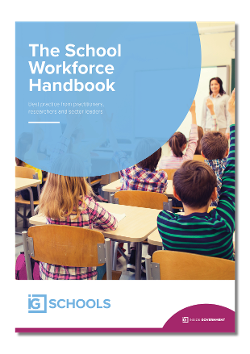An Interview with Jon Richards, UNISON's Head of Education

We caught up with UNISON’s Jon Richards, to discuss why is it vital that training for teaching assistants be improved, and find out more about the work being done by Jon and colleagues to support schools as they endeavour to raise standards for teaching assistants.
Why is it important to increase training and professional development for teaching assistants?
Over a quarter of the school workforce are teaching assistants with a higher proportion in primary schools and often a majority of staff in special schools. Yet even though they are in the classroom and have direct contact with pupils, compared to teachers the amount of training and professional development they receive can be minimal. The evidence is clear that better trained and deployed staff improve pupil outcomes, so it should be a no-brainer.
What barriers exist that prevent full utilisation of teaching assistants?
Time, money and understanding. Schools are incredibly busy places and teachers and school leaders are under enormous pressure to deliver a good education. With increasing workloads, time with support staff sometimes gets squeezed out. With funding pressures leading to budget cuts and reductions in numbers - there has been an 8% reduction in the number of teaching assistants in secondary schools since 2013 - school leaders are having to look at every penny they spend. And finally whilst there has been some improvement in initial teacher training, learning how to work with teaching assistants and how to use them effectively is not a major part of the syllabus.
Who should be involved in working to maximise the impact of teaching assistants?
Teaching assistants themselves and the teachers they work with. But the most effective schools are where leadership teams build the role of support staff into everything they do from the very start of planning.
What resources are available to support senior leadership teams make best use of teaching assistants?
There has been a growing group of organisations which have begun to produce helpful resources. UNISON has produced a Career Framework and our Skills for School website, and we are working on guidance on deployment. We worked with a coalition of education organisations such as the National Education Trust and the NAHT, to produce Professional Standards, and we have worked particularly well with the Maximising the Impact of Teaching Assistants (MITA) project, which does outstanding work on deployment. Whole School SEND have also done some useful work in this area. And of course the Education Endowment Foundation (EEF) has done some useful work putting into place some of the missing evidence, which has spurred us on to sponsor a few specific school based TA led research projects.
Read more about staff development in our Workforce Handbook.



.png)
